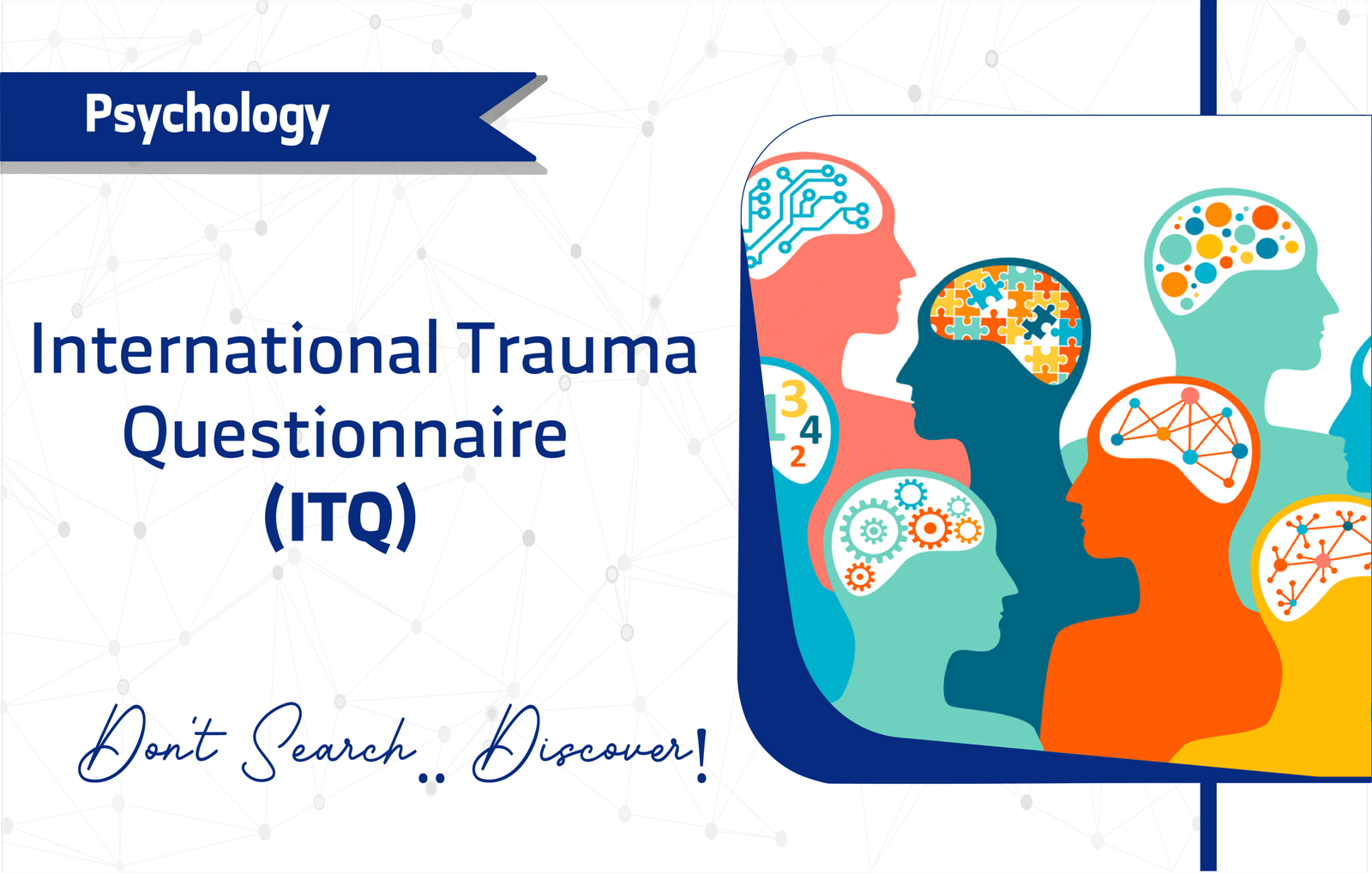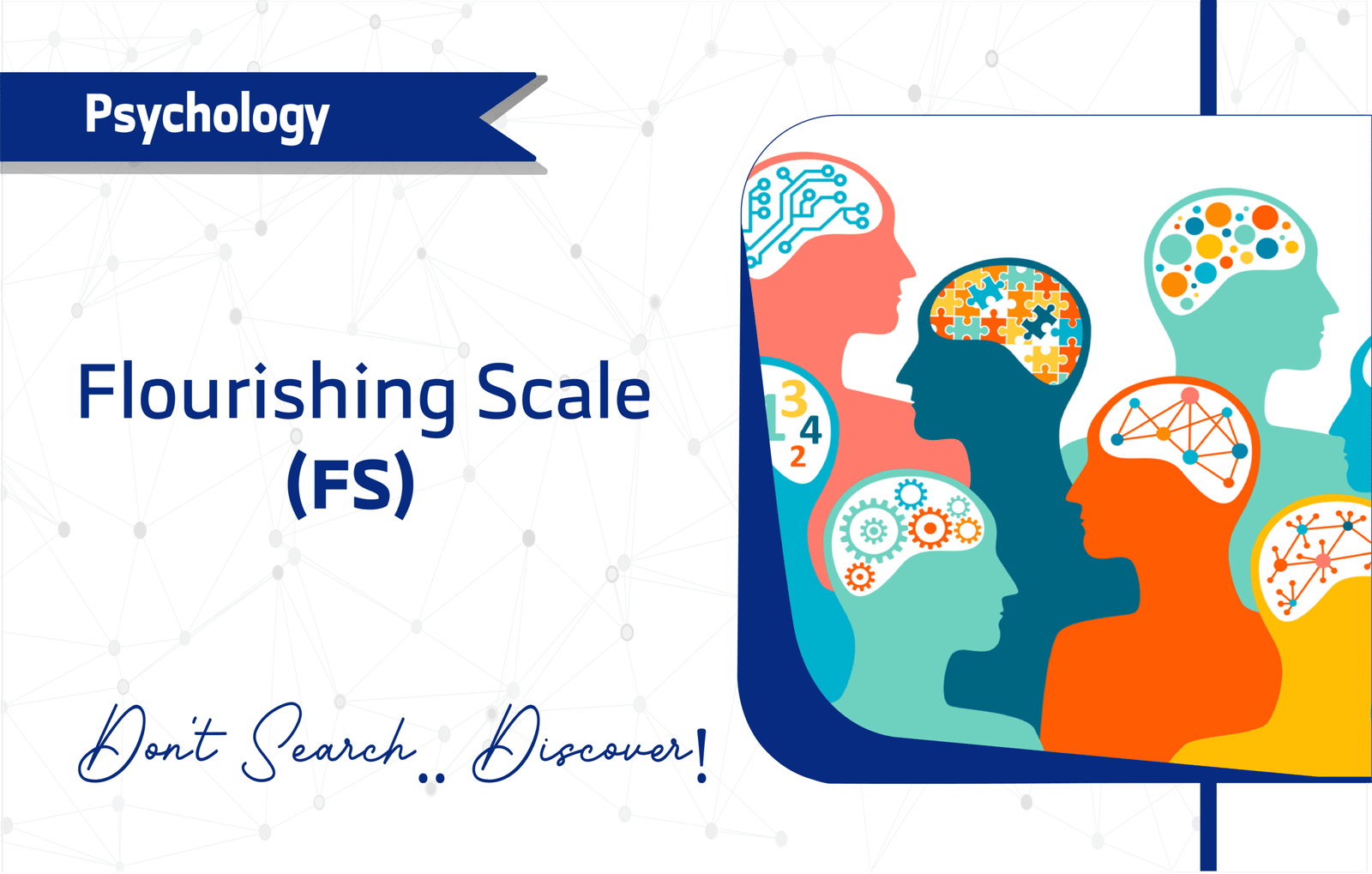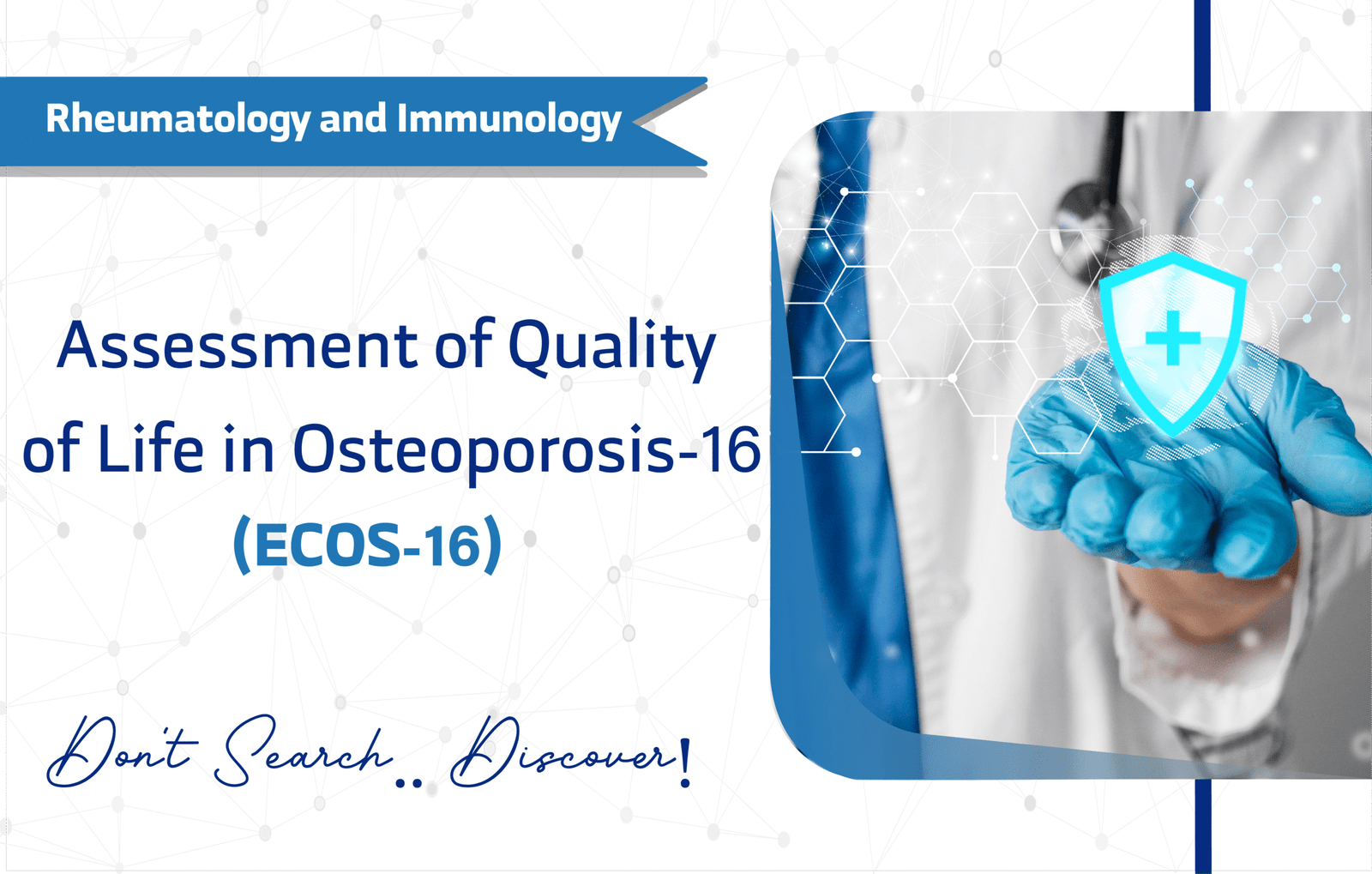Introduction
The International Trauma Questionnaire (ITQ) serves as a vital instrument for evaluating trauma’s impact on mental health, specifically targeting Post-Traumatic Stress Disorder (PTSD) and Complex PTSD (CPTSD) as outlined in the ICD-11. In 2018, Marylene Cloitre and her team developed this tool, which was subsequently published in Acta Psychiatrica Scandinavica by Wiley & Sons. Since then, it has garnered over 1,200 citations on Google Scholar, underscoring its significance in psychiatry research.
Specifically designed for adults aged 18 and older, this self-administered questionnaire assesses PTSD symptoms, including re-experiencing, avoidance, and sense of threat, alongside Disturbances in Self-Organization (DSO) symptoms, such as affective dysregulation, negative self-concept, and interpersonal difficulties. Consequently, it empowers clinicians and researchers with precise insights to improve trauma care. This article thoroughly explores the ITQ’s features, scoring, applications, and limitations, offering a comprehensive guide for mental health professionals aiming to utilize PTSD assessment tools effectively.
Key Features of the International Trauma Questionnaire (ITQ)
Purpose and Use
The ITQ actively evaluates symptoms of Post-Traumatic Stress Disorder (PTSD) and Disturbances in Self-Organization (DSO), which collectively define Complex PTSD (CPTSD) according to the ICD-11 framework. For this reason, it proves ideal for clinical diagnosis, treatment planning, and research, delivering precise insights into trauma’s impact compared to broader mental health tools.
Target Population
The ITQ specifically targets trauma-exposed adults aged 18 and older, encompassing young adults (18–24), middle-aged adults (25–44), older adults (45–64), and seniors (65+). Importantly, it remains unsuitable for children or adolescents, focusing solely on adult populations with trauma exposure.
Structure
The ITQ consists of 12 core items divided into two primary domains:
PTSD Symptoms (6 items): This section addresses re-experiencing (2 items), avoidance (2 items), and sense of threat (2 items).
DSO Symptoms (6 items): This part covers affective dysregulation (2 items), negative self-concept (2 items), and disturbances in relationships (2 items).
Functional Impairment: Six additional items (3 for PTSD, 3 for DSO) evaluate disruptions in daily life.
Each item employs a 5-point Likert scale (0 = Not at all, 4 = Extremely), capturing symptom severity over the past month. As a result, the questionnaire takes less than 5 minutes to complete.
Scoring Method
The ITQ utilizes a 5-point Likert scale (0 = Not at all, 1 = A little, 2 = Moderately, 3 = Quite a bit, 4 = Extremely) for its 12 core symptom items and six functional impairment items. Additionally, it incorporates diagnostic and dimensional scoring approaches aligned with ICD-11 criteria:
Diagnostic Scoring:
PTSD:
Re-experiencing: At least one of P1 or P2 (intrusive memories/flashbacks) scores ≥2.
Avoidance: At least one of P3 or P4 (avoiding trauma-related stimuli) scores ≥2.
Sense of Threat: At least one of P5 or P6 (hypervigilance/feeling on edge) scores ≥2.
Functional Impairment: At least one of P7, P8, or P9 (impact on daily life, e.g., work or relationships) scores ≥2.
Requirement: All four criteria must be met for a PTSD diagnosis.
CPTSD:
First, meet all PTSD criteria.
Affective Dysregulation: At least one of C1 or C2 (emotional instability, e.g., difficulty calming down) scores ≥2.
Negative Self-Concept: At least one of C3 or C4 (worthlessness/failure) scores ≥2.
Disturbances in Relationships: At least one of C5 or C6 (relationship difficulties, e.g., feeling distant) scores ≥2.
Functional Impairment: At least one of C7, C8, or C9 (DSO-related impact) scores ≥2.
Requirement: All PTSD and DSO criteria must be met for a CPTSD diagnosis.
Dimensional Scoring:
PTSD Score (0–24):
Re-experiencing: P1 + P2 (0–8).
Avoidance: P3 + P4 (0–8).
Sense of Threat: P5 + P6 (0–8).
Total: Sum of the three subscales.
DSO Score (0–24):
Affective Dysregulation: C1 + C2 (0–8).
Negative Self-Concept: C3 + C4 (0–8).
Disturbances in Relationships: C5 + C6 (0–8).
Total: Sum of the three subscales.
Special Considerations: Missing responses invalidate diagnostic scoring unless all required items are completed. Conversely, dimensional scores rely only on completed items, with no imputation. Therefore, accurate item mapping (P1–P6 for PTSD, C1–C6 for DSO) remains critical to avoid errors.
Interpretation: Higher dimensional scores reflect greater symptom severity (e.g., a PTSD score of 18/24 indicates severe symptoms). Meanwhile, diagnoses depend on cluster thresholds (≥2), not total scores. For example, score reductions (e.g., from 15 to 5 in DSO) may signal treatment progress, although specific clinical significance thresholds remain undefined.
Administration Format
The ITQ is quick to administer and supports multiple formats:
- Paper-based forms
- Digital (online) platforms
- In-person interviews
- Phone or video calls
Its self-administered nature requires no specialized training, enhancing its practicality for clinical and research settings.
Applications of the International Trauma Questionnaire (ITQ)
The ITQ fulfills multiple roles in psychiatry and mental health:
Screening: It effectively identifies trauma-exposed individuals with significant PTSD or CPTSD symptoms.
Diagnosis: It supports ICD-11-based PTSD and CPTSD diagnoses.
Monitoring: It tracks symptom changes over time, particularly in response to therapy.
Treatment Planning: It guides clinicians in tailoring interventions based on symptom profiles.
Research: Its widespread use in studies, as evidenced by extensive citations, evaluates trauma-related outcomes.
For instance, its sensitivity to both PTSD and CPTSD makes it invaluable for assessing complex trauma in clinical trials. Furthermore, its alignment with ICD-11 ensures relevance in global mental health research.
Languages and Availability
The ITQ is available in multiple languages, including:
- Arabic
- English
- Mandarin Chinese
- Spanish
- French
- As well as Russian, German, Portuguese, Japanese
- The total number of available languages exceeds 30
its public domain status permits free use for non-commercial purposes, although commercial applications require permission from the author’s estate or the publisher.
Reliability and Validity
The International Trauma Questionnaire (ITQ) is highly reliable and valid for assessing ICD‑11 PTSD and Complex PTSD. In its development study (Cloitre et al., 2018) using the 28‑item version, internal consistency showed Cronbach’s alpha ≥ 0.77 for PTSD and DSO and 0.67 for avoidance, though alpha values were not reported for the final 12‑item version. Later validations, such as the Lithuanian study, reported α = 0.93 for the total ITQ, 0.86 for PTSD, and 0.89 for DSO, confirming strong psychometric properties across cultures. Validation studies include:
Limitations and Considerations
Despite its strengths, the ITQ presents several limitations:
Self-Report Bias: Since it relies on self-reporting, responses may reflect social desirability bias or subjective interpretation, potentially affecting accuracy.
Age Restrictions: The ITQ targets adults aged 18 and older, making it unsuitable for children or adolescents, thus limiting its applicability across all age groups.
Scoring Complexity: The ITQ’s scoring system, with its diagnostic and dimensional approaches, can prove complex and may require training for accurate implementation, especially for clinicians unfamiliar with ICD-11 criteria.
Narrow Focus: By focusing specifically on ICD-11 PTSD and CPTSD symptoms, the ITQ limits its use for assessing other trauma-related disorders or broader mental health conditions.
Nevertheless, these limitations underscore the need for careful application, yet the ITQ remains a robust tool for trauma assessment.
Other Versions and Related Questionnaires
Complementary Questionnaires:
- PTSD Checklist for DSM‑5 (PCL‑5): A widely used self‑report measure assessing PTSD symptoms based on DSM‑5 criteria.
- Clinician‑Administered PTSD Scale for DSM‑5 (CAPS‑5): Considered the gold standard for structured PTSD diagnosis through clinical interviews.
- International Trauma Interview (ITI): A clinician‑administered interview developed to complement the ITQ for ICD‑11 PTSD and CPTSD.
- Child and Adolescent Trauma Screen (CATS): A reliable measure for identifying trauma symptoms in younger populations.
Additional Resources
- Access the original validation study: Cloitre et al. (2018).
- ITQ Questionnaire PDF: Trauma Measures Global ITQ PDF, provides the ITQ questionnaire and scoring instructions in PDF format for clinical and research use.
- ITQ Download Page: Trauma Measures Global, the official source for accessing the ITQ questionnaire in multiple languages for non-commercial use.
- For inquiries, contact Marylene Cloitre at marylene.cloitre@nyumc.org.
Frequently Asked Questions (FAQ)
- Who can use the ITQ?
Clinicians, researchers, and mental health professionals assessing trauma-exposed adults aged 18 and older. - How long does it take to complete the ITQ?
Typically less than 5 minutes, making it feasible for clinical and research settings. - How is the ITQ administered?
Via paper, digital, in-person interviews, or phone/video calls, offering flexible usage. - Is there any cost to using the ITQ?
The ITQ is free for non-commercial use; commercial use may require permission from the publisher.
A Word from ResRef the International Trauma Questionnaire (ITQ)
The International Trauma Questionnaire (ITQ) is a widely used, free, self-report measure designed to assess symptoms of Post-Traumatic Stress Disorder (PTSD) and Complex PTSD (CPTSD) based on the ICD-11 diagnostic criteria. It’s particularly useful for research and clinical settings to help determine if someone is experiencing PTSD or CPTSD symptoms and how those symptoms impact their daily functioning.
References
- Cloitre, M., Shevlin, M., Brewin, C. R., Bisson, J. I., Roberts, N. P., Maercker, A., … & Hyland, P. (2018). The International Trauma Questionnaire: Development of a self‐report measure of ICD‐11 PTSD and complex PTSD.Acta Psychiatrica Scandinavica, 138(6), 536-546. Link
- Fresno, A., Ramos Alvarado, N., Núñez, D., Ulloa, J. L., Arriagada, J., Cloitre, M., Bisson, J. I., Roberts, N. P., Shevlin, M., & Karatzias, T. (2023). Initial validation of the International Trauma Questionnaire (ITQ) in a sample of Chilean adults. European journal of psychotraumatology, 14(2), 2263313. Link
- Haselgruber, A., Weindl-Wagner, D., Zagaria, A., Zajec, K., Noske, J., & Lueger-Schuster, B. (2025). Construction and initial validation of the International Trauma Questionnaire – Caregiver Version (ITQ-CG): assessing ICD-11 PTSD and CPTSD in children from caregiver perspective. European Journal of Psychotraumatology, 16(1). Link
- Draczyńska, D., Mokros, Ł., Nowakowska, A., & Anczewska, M. (2025). Polish adaptation and validation of the International Trauma Questionnaire (ITQ) for PTSD and cPTSD according to ICD-11 in non-clinical and clinical samples. European Journal of Psychotraumatology, 16(1). Link
- Yousefi, S., & Abdoli, F. (2024). Assessing the Persian International Trauma Questionnaire: A psychometric study. European Journal of Trauma & Dissociation, 8(2), Article 100404. Link
- Afsharzada, M. S., Saadat, S., Afsharzada, M. E., Lindström, L., Fahiz, M. F., & Fazel, F. R. (2025). Dari version of International Trauma Questionnaire–Child and Adolescent Version (ITQ‑CA): In a sample of Afghan children and adolescents exposed to trauma. European Journal of Trauma & Dissociation, 9(2), 100540. Link
- Langdon, E., Bisson, J. I., Rogers, G., Swain, S., Hiles, S., Watkins, A., & Willner, P.(2023). Evaluation of an adapted version of the International Trauma Questionnaire for use by people with intellectual disabilities. British Journal of Clinical Psychology, 62, 471–482. Link







